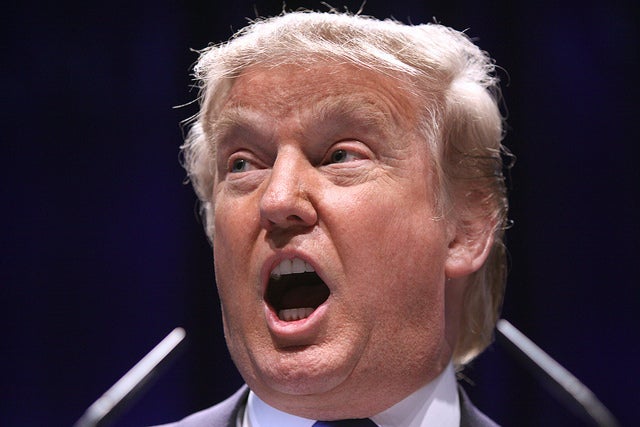
One month has passed since Donald Trump’s dramatic victory over Hillary Clinton in the US Presidential election. Months after British voters surprised everyone by choosing to leave the European Union, so too the US electorate shocked the world by electing Donald Trump as the next President of the United States.
In the weeks that have ensued, there’s been much fanfare over of who will form the president-elect’s cabinet, with some of his picks proving controversial. As I reported in my previous article on Trump’s win, his policies on scientific research appear thin on the ground. And one month on, it still remains to be seen what the implications of Trump’s victory will mean for the industry. That said, early signs suggest a President Donald J Trump could actually be a good thing.

Discover B2B Marketing That Performs
Combine business intelligence and editorial excellence to reach engaged professionals across 36 leading media platforms.
If we rewind to the immediate aftermath of the election, global markets plummeted as the result was declared before eventually settling down. Crucially, as the markets recovered, there was a noticeable boon for the pharmaceutical and biotech industries.
According to a recent report, by the time markets closed on the day after the election, Merck and Pfizer were up by 6 and 7 percent respectively. This is telling because from a business perspective, it indicates a sense of relief over Trump’s victory.
“The financial community in general considers that a Trump administration will have a neutral to positive effect on the medicinal products industry,” said Jacquie Mardell, senior director of Clinical Operations, Ascendis Pharma.
The reason for this consensus is simple. Clinton was viewed as the bigger threat to industry with her stated desire to lower the price of prescription drugs if she became president. Meanwhile, Trump was perhaps less combative saying he wanted Medicare to negotiate with companies over drug prices, an idea that’s anathema to GOP values incidentally.

US Tariffs are shifting - will you react or anticipate?
Don’t let policy changes catch you off guard. Stay proactive with real-time data and expert analysis.
By GlobalDataNevertheless, it’s Trump’s commitment to small government and deregulation that could have a positive effect on how industry goes about its business in the coming years.
“[If Trump eases] regulation and taxes on business in general, it’s likely pharma companies will be motivated to bring their offshore operations back to the US, bringing cash and job opportunities with them,” said Mardell.
With the GOP now in control of both the White House and Congress, Mardell said it’s possible Republicans will push the FDA to approve products faster, further reducing regulation.
“[T]he last time Newt Gingrich was in power, there was a serious proposal to eliminate the FDA altogether and replace it with a “private organization” staffed by industry scientists; essentially the industry would regulate itself. The FDA Modernization Act of 1997 was what saved the FDA at that time,” Mardell said.
What’s more, there’s also another aspect at play that, as STAT reported, is another sign of the positive mood in the pharma and biotech industries. Damian Garde and Meghan Keshavan write:
As it stands, multinational companies have to pay a 35 percent repatriation tax if they want to bring money from overseas into the US. Trump has promised to cut that figure down to 10 percent, and biotech investors think that might herald a wave of deal-making.
Companies like Gilead, Amgen, and Pfizer have billions of dollars parked overseas. Freeing up transcontinental money movement could lead to an explosion of buyouts, which investors, naturally, quite like.
While this is all very well, question marks remain over federal research funding under a Trump administration. Although the Republican-led senate has pledged to commit an extra $2billion to the $32billion budget given to the National Institutes of Health (NIH), there is one caveat. Experts posit the NIH’s annual budget isn’t increasing in line with inflation, so that poses an issue further down the line.
Over the years, research institutions in Massachusetts, a notable biotech hub, have depended on federal funding from the NIH. With Republicans now in control of both houses of Congress, Massachusetts, a blue state, could lose some of its lobbying clout in Washington.
What’s more with China exerting its influence in the clinical research space, key industry leaders will be keen to stress to Trump the importance of staying one step ahead.
Whatever comes to pass over the next four years, the key players cannot lose sight of the ultimate endgame – curing patients.
“[F]or the pharma industry and its shareholders, there are probably sunny days ahead. For the patients who need the medicines that we develop, the answer is less rosy,” Mardell said. “There is no indication that a Trump administration will help the industry produce safe, effective, and affordable medicines for the patients we supposedly serve.”





